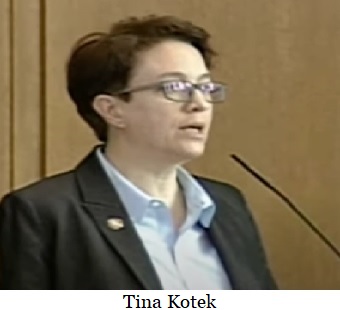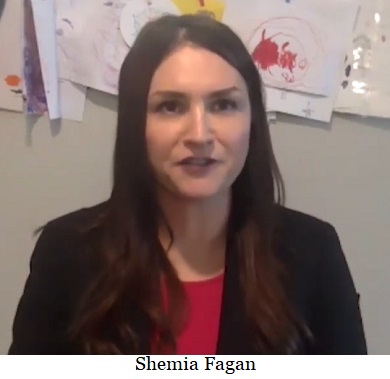 Post an Event
Post an Event
| Coffee Klatch, Jeff Kropf host |
| Monday, April 7, 2025 at 6:00 pm |
Political news unraveled. Guest speakers, Senators and Representatives. Hear Candidates running for May Primary. Learn how to testify. Bring your friends and neighbors!
All welcome. |
| Bo & Vine 3969 Commercial SE, Salem |

| OFF 2-Day Shooting Event |
| Saturday, May 3, 2025 at 10:00 am |
| Oregon Firearms Federation. All proceeds benefits OFF’s legal fund to cover ongoing fight against Measure 114 and efforts to protect your Second Amendment rights. Cost $50 per day, May 3 and 4, 10am to 7pm. Competitions. Special prices. Food & drink provided. 541-258-4440 |
| Indoor Shooting Range, 580 S Main, Lebanon, OR |

| Oregon Citizens Lobby War Room |
| Thursday, June 26, 2025 at 8:30 am |
| Meet at Ike Box for training and updates on legislation. Send testimony, watch hearings, and visit capitol to testify. Legislators and special guests. Every Thursday 8:30am to 3:00pm to June 26. |
| Ike Box, 299 Cottage St NE, Salem (upstairs) |
Cringeworthy tweet on a recent mistaken police shooting
Back when Dennis Richardson was running for Secretary of State, he stressed the non-partisan and non-political nature of the office. He was
quoted as saying “If I’m secretary of state, you won’t be able to tell if I’m Republican or Democrat†and in the opinion of many people, he did run the office that way. According to some, that was a key to his being elected. Voters don't want a partisan in the state's chief elections officer.
Enter Shemia Fagan.
As details are still unfolding regarding what appears to be a very unfortunate mistake by a police officer in Minnesota, Oregon Secretary of State Shemia Fagan (D-Portland) has posted a tweet -- as Oregon Secretary of State, not as herself -- politicizing the issue.

Everyone is entitled to their opinion, including -- maybe even especially -- Secretary Fagan, but it's disappointing to see partisan opinion peddled under the banner of the Office of the Secretary of State.
It's as if she can't help herself from playing politics using a police officer -- who to all appears to have just made a mistake -- from a state halfway across the country.
Fagan is well-known as a political animal. First elected to the Oregon House in 2012, she served two terms until being recruited to run a primary race against then-State Senator Rod Monroe. From her State Senate seat, she ran a public-employee-union-funded campaign against fellow Senator Kin Thatcher.
--Staff Reports| Post Date: 2021-04-12 20:24:21 | Last Update: 2021-04-13 15:43:29 |
Equity oversight of marijuana?
Democrats in Oregon now want to have oversight of marijuana and want to spend money as they see fit through a "Cannabis Equity Fund".
HB 3112 is a bill currently in the Oregon legislature that is sponsored by Representative Ricki Ruiz (D-Portland), Representative Julie Fahey (D-Eugene), Representative Janelle Bynum (D-Clackamas), Representative Mark Meek (D-Gladstone), Representative Karin Power (D-Portland), Senator Lew Frederick (D-Portland), and Senator Kayse Jama (D-Portland).
HB 3112, if passed, would establish a Cannabis Equity Board within the office of Governor Kate Brown in order to provide "equity" oversight of cannabis industry in Oregon.
The bill contains the following proposals:
- Requires board to annually report information about equity in Oregon cannabis industry to interim committee of Legislative Assembly related to cannabis.
- Establishes equity liaisons in Oregon Health Authority and Oregon Liquor Control Commission. Requires equity liaisons to report to board quarterly on specified information. Establishes Cannabis Equity Fund and continuously appropriates moneys in fund to board for specified purposes.
- Directs commission to issue equity license to qualified applicant.
- Allows commission to issue cannabis on-premises consumption license, cannabis delivery license, shared processing license or shared processing facility license to applicant who meets qualification criteria for equity license.
- Allows commission, after January 1, 2032, to issue cannabis on-premises consumption license, cannabis delivery license, shared processing license or shared processing facility license to applicant who does not meet qualification criteria for equity license.
- Directs office of public defense services to compile list of certain offenses that involve lawful marijuana activity for purposes of setting aside records of conviction, arrest or charge.
- Requires office to submit report with list of offenses to Judicial Department, Cannabis Equity Board and interim committees of Legislative Assembly related to judiciary.
- Directs Judicial Department and Department of State Police to provide information to office of public defense services concerning persons who may be eligible to have set aside conviction, arrest or charge for marijuana offense.
- Modifies procedures for setting aside certain marijuana convictions, arrests and charges.
- Authorizes office of public defense services to file motions for setting aside certain marijuana convictions, arrests and charges.
- Limits imposition of supervision conditions related to use of marijuana.
- Provides that marijuana use may not be basis of parole, probation or post-prison supervision violation except in certain circumstances.
- Requires entities that maintain records of parole, probation or post-prison supervision violations to review and expunge any records of violations based on specified conduct not later than December 31, 2024.
- Requires allocation of moneys in Criminal Fine Account to Cannabis Equity Fund.
- Requires distribution of moneys from Oregon Marijuana Account to Cannabis Equity Fund. Specifies manner in which authority shall use moneys transferred to authority.
- Provides that authority may not charge fee greater than $20 for registry identification card for individual who served in Armed Forces of United States or who receives certain public assistance or $60 for any other individual.
The Oregon Judicial Department has
expressed concern about the legislation via testimony.
--Bruce Armstrong| Post Date: 2021-04-12 19:02:53 | Last Update: 2021-04-12 22:29:57 |
The dawn of global cooling?
The coldest it has ever been at the Portland Airport in the 80 years of records was 33° F. Friday night we got down to 33° F, and even lower at the Troutdale Airport. Radiative cooling under clear skies left a white frosty landscape by morning.
Atmospheric carbon dioxide did not save us.
And the record cold did not stop there. Here is the Weather Service Record Event report for our area:
686
SXUS76 KPQR 111629
RERPQR
RECORD EVENT REPORT
NATIONAL WEATHER SERVICE PORTLAND OREGON
900 AM PDT SUN APR 11 2021
...RECORD LOW TEMPERATURES SUNDAY APR 11TH 2021...
| LOCATIONS | LOW | OLD RECORD (YEAR)
|
| ASTORIA | 30° | 31° (1991) |
| EUGENE | 30° | 31° (1991) |
| HILLSBORO | 26° | 30° (1947) |
| PORTLAND AIRPORT | 32° | 33° (1991) |
| SALEM | 29° TIED | 29° (1991) |
| TROUTDALE | 29° | 31° (1965) |
| VANCOUVER | 28° TIED | 28° (1980) |
And for good measure, here are the record lows set on Friday morning:
Record Report
RECORD EVENT REPORT
NATIONAL WEATHER SERVICE
632 PM PST FRI APR 9 2021
...RECORD LOW TEMPERATURES IN NORTHWEST OREGON THIS MORNING...
| LOCATION | LOW TEMP | APRIL 9 RECORD |
| ASTORIA | 30° | 32°/1982 |
| TROUTDALE | 31° | 32°/1975 |
--Staff Reports with Dr. Gordon Fulks| Post Date: 2021-04-12 10:44:11 | Last Update: 2021-04-12 12:07:02 |
There’s a lot of stuff in the pipeline
For weeks, the Oregon House only met 1 day a week to read, debate and vote on bills. However, after a shutdown of the House floor due to a positive COVID-19 case, House Speaker Tina Kotek (D-Portland) decided to kick the legislature into high gear. She began scheduling “daily double†floor session starting March 30th.
On March 30, there were 45 bills scheduled for 2nd reading, setting up the opening of the flood gates. The next day the House was able to move just one bill on a party line vote. Why? The bill voted on was only slightly controversial. It required local governments to allow the conversion of hotels and motels into emergency homeless shelters or affordable housing. While historically it was permissible by local land use planners,
HB 3261, introduced by Representative Pam Marsh (D-Portland), would now require local jurisdiction to allow it.
However, that issue was not the cause of the delay. What brought the House to a crawl was the reading of the next bill,
HB 2111 which was 170 pages long. The Minority party has refused to suspend the rules which requires the reading of each bill, in its entirety, prior to debate and vote. The bill took almost 8 hours to read.
In a
recent article by Representative Bill Post (R-Keizer), he shared the rationale behind the minority request to read the bills in their entirety before a vote. “House Republicans are currently slowing down the Oregon Legislature which is trying to rush passing more than 4,000 wide-ranging bills in a pandemic session. While most bills will have bipartisan consensus like the budget, there are still about 10 percent of the proposals that are partisan, and I believe could make life far worse for Oregoniansâ€.
By April 1, the House had only passed 11 bills including 4 agency budget bills which were moved up the list through bipartisan negotiations. The chamber was also originally scheduled to meet on Good Friday and the Saturday of Easter weekend, but those floor sessions were ultimately canceled by the Speaker of the House possibly as a part of the bipartisan negotiations.
A D V E R T I S E M E N T

A D V E R T I S E M E N T
The House resumed on Monday the 5th with a planned week of “daily double†floor sessions. They quickly managed to whittle off 12 bills from the growing list, but the bills being 2nd read were ever growing and backfilling the 3rd reading list faster than it was being trimmed down. The House continued to meet twice a day through Saturday afternoon trying to shorten the list. However, at the end of the day Saturday, the 3rd reading list posted for Monday contained 50 Bills more than they had two weeks ago.
However, next week the flow of bills out of most of the committees will come to a halt. The calendar dictates that committee bills must be moved out of committee in the original chamber by the end of the day April 13. In addition, the committee chairs from the majority party started canceling committee hearings for next week -- after the 13th -- to clear the calendar for some exceptionally long floor sessions.
Starting Thursday, the House will meet 8 to 10 hours a day just to vote on bills. House Speaker Kotek appears to be determined to clear the list and keep all the bills in the queue moving despite pleas from the Republicans that the focus should be placed on agency budget bills, wildfire relief and COVID-19.
Despite procedural tools use by the minority party such as reading of the bills in their entirety and lengthy floor speeches supporting and opposing bills, there is little the Republicans can do to stop the agenda of the super majority.
--Staff Reports| Post Date: 2021-04-12 10:10:58 | Last Update: 2021-04-12 10:44:11 |
Addresses public health concerns
On April 8th, after listening to spirited testimony, the Oregon Liquor Control Commission (OLCC) approved a floor pricing proposal for distilled spirits which increases the price of the lowest priced spirits sold in Oregon liquor stores.
The wine industry also provided the Commission an overview of its plan to recover from the state mandated lock-down and to return the industry to the growth trajectory it was on in 2019.
Earlier this year, in response to public health concerns around alcohol addiction, the OLCC proposed implementing a “floor†for the lowest priced spirits sold by the OLCC. In the weeks leading up to today’s Commission meeting, the agency received approximately 500 written comments about the proposal. The Commission framed the issue as balancing business interests with public health concerns.
During the mandated lock-down, the OLCC loosened alcohol regulations which have provided Oregonians with easier access to liquor. Liquor stores were deemed essential.
“We increased delivery and availability in the face of COVID,†said OLCC Executive Director Steve Marks. “We became intently aware of the State’s alcohol problem and the impact that alcohol was having on Oregon itself. We principally put this forward as an option because it’s what we could do on the public health front. We control the pricing policy.â€
Public health advocates and addiction researchers testified in favor of proposed floor pricing citing research that shows increased prices drive down purchases.
“Increasing the price of alcohol is an effective,evidence based strategy that we can now take to reduce excessive alcohol use,â€said Dr. Reginald Richardson,Chair of the Oregon Alcohol Drug and Policy Commission.
Liquor store owners voiced their support by pointing out that low priced distilled spirits are “loss leaders†that are favored by customers who have addiction issues.
However,the hospitality industry and business groups affiliated with alcohol licensees said floor pricing jeopardizes the hospitality industry’s fragile recovery. Opponents testified that they believe it’s the wrong time for increasing bar and restaurant operating costs.
“Now is not the time to make it more difficult for bars and restaurants to do business and serve customers. Let’s build on the good will of the accomplishments of the past year,†said Greg Astley from the Oregon Restaurant and Lodging Association.
A D V E R T I S E M E N T

A D V E R T I S E M E N T
Commissioners raised concerns about other price hike proposals being discussed at the legislature and the impact on Oregon small businesses.
“We’re all concerned citizens on this Commissionâ€, said Commission Chair Paul Rosenbaum. “We are certainly aware of the terrible and difficult circumstances facing restaurant and bar owners in this state. We’re also aware of the drug and alcohol addiction, as well in this state. So there’s competing factors.â€
The Commissioners ultimately voted to approve floor pricing, which will take effect July 1, 2021.
Oregon wine industry representatives provided Commissioners with their plan to recover from COVID lock-downs and wildfire impacts, which they estimate reduced wine businesses’ revenues by about 20 percent. In fact, before the pandemic the industry was generating $7.21 billion in economic impact for the state and Oregon wines were continuing their ascent in world-class stature. Fortunately, grape growers were able to partner with Oregon State University to swiftly test whether wine grapes had been impacted by smoke from the wildfires enabling growers to make informed business decisions about their harvest.
To recover from the mandated state lock-down, the industry is launching a marketing campaign called “True Character†to bring consumers back to Oregon wines and tourists back to Oregon wineries. The industry expects wine tourism will initially be limited to short-distance in-state travelers, and expects the overall recovery to be gradual in relation to the post lock-down comeback.
--Bruce Armstrong| Post Date: 2021-04-11 18:03:25 | Last Update: 2021-04-11 18:45:14 |
We’ve seen this process before, and seen it's results.
Finally citizens of Oregon have received some great news regarding the future of their representation in the Oregon Legislature and in Washington DC.
Once Every 10 years voter representation in both the State Legislature and in Washington DC is revisited. Lines are redrawn based on population changes obtained by the US census. The 2020 census appears to point to significant growth in Oregon’s population. Growth large enough to warrant adding an additional Congressional seat to Oregon’s representation in Washington DC. The process, however, has been in limbo from the very beginning due to the delay in census data availability.
The Oregon Supreme Court issued a ruling that granted the bipartisan legislative request to extend the timeline to finish the redistricting process. They will issue a writ of mandamus allowing the Legislature to have the first chance to come up with a redistricting plan. The revised deadlines would require an emergency special session and would give the Legislature until September 27 to enact a redistricting plan, ensuring it becomes effective by February 1, 2022.
The opinion, issued by Chief Justice Walters, will keep the process from being transferred to Secretary of State Shemia Fagan. Secretary of State Shemia Fagan opposed the Legislature retaining control of the process. However, the Oregon Supreme Court rejected her attempt to block their control, calling her legal arguments flawed.
Last year The Oregon League of Women Voters began an initiative petition aimed at ending political gerrymandering in Oregon. They sought to ask the voters to approve the creation of an independent citizens' redistricting commission for reapportioning Oregon's state legislative districts. Commissioners would have been selected by county officials. 83 percent of Democrats, 67 percent of Independents, and 60 percent of Republicans support independent redistricting, according to data shared by Norman Turrill, Chair of the People Not Politicians, during a recent House Special Committee on Redistricting hearing.
A D V E R T I S E M E N T

A D V E R T I S E M E N T
The House Republicans agree and continue to call for the Legislature to follow Washington and California by establishing its own independent redistricting commission. “Oregon needs to commit to a nonpartisan and transparent redistricting process,†said House Republican Leader Christine Drazan (HD39-Canby.) “Shockingly, we are the only state on the west coast that does not currently have an independent redistricting commission. In fact, we’re behind 26 other states in the country that have or are moving to an independent system this year. Oregonians deserve better, and they overwhelmingly support independent redistricting†she concluded in a press release.
What could have happened is that the redistricting task could have fallen to the Secretary of State, where the job gets done behind closed doors, without transparency. We've seen this process before, and seen it's results.
--Terese Humboldt| Post Date: 2021-04-11 10:16:07 | Last Update: 2021-04-09 10:32:20 |
Measure 11 removes the hidden biases that come into play
Proponents of eliminating of Ballot Measure 11 uniformly claim, without presenting any evidence whatsoever, that the measure has increased racial disparities in the justice system. Not only is this claim categorically false, but the exact opposite is true. Ballot Measure 11 has significantly improved racial disparities in felony sentencing and imprisonment in Oregon, and among some minority groups, has totally eliminated those disparities. Any assertion to the contrary is simply false.
Academics utilize a data tool called the Relative Rate Index to quantify disparities among demographic groups. The RRI measures the rate at which a demographic group appears in the particular category under study against the rate at which that demographic group appears in the general population. For instance, if a particular racial group constitutes 10% of the general population, but 20% of infant mortality deaths, an obvious disparity exists. That RRI ratio of 1:2 represents a significant issue for policy makers to address.
To analyze over-representation by race in the criminal justice system, data analysts use the Relative Rate Index to compare the general population percentage of a particular race or ethnic group to the percentage of the prison population by race. Since the advent of Ballot Measure 11 in 1995, racial disparities in the prison system have improved dramatically. Disparities for Blacks have been cut in half, and disparities among Hispanics have disappeared completely in Oregon. Whites, on the other hand, have been incarcerated in prison at increasing rates since Measure 11 was instituted.
The obvious conclusion is that a sentencing system that encourages a fixed sentence (contrary to what opponents claim, Measure 11 is not a completely mandatory sentencing law) removes the hidden biases that come into play in a subjective sentencing process. The Relative Rate Index data is clear. Because of Ballot Measure 11, racial disparities in violent felony sentencing have improved as follows:
Hispanic disparities. In 1994, Hispanics made up 3.97% of Oregon’s general population, but 10.41% of its prison population. Today, Hispanics constitute 13.4% of Oregon general population, but 13.2% of Oregon prison population. Not only have all Hispanic racial disparities been eliminated among prison inmates in Oregon, but Hispanics now represent a lower percentage of Oregon prison population than they do in Oregon’s general population. Justice system incarceration disparities for Hispanics in Oregon have been eliminated since the advent of Ballot Measure 11.
A D V E R T I S E M E N T

A D V E R T I S E M E N T
African-American disparities. In 1994, African-Americans made up 1.62% of Oregon’s general population, and today that figure is 2.20%. Using the RRI analysis for African-Americans in Oregon’s prison system, the RRI ratio in 1994 was 8.2:1. The ratio today is 4.2:1, meaning that justice system racial disparities among African-Americans have been cut in half since BM11 came into effect.
Native-American/Alaskan disparities. In 1994, Native-American/Alaska natives made up 1.35% of state general population, and today that figure is 1.80%. In 1994, justice system disparities for this group were 1.72:1. Today, that figure is 1.77:1, essentially unchanged.
White disparities. The white RRI ratio has increased from .787:1 in 1994 to .861:1 today. RRI data makes it clear that Measure 11 has increased the share of Oregon prison inmates who are white.
--Staff Reports| Post Date: 2021-04-10 18:40:32 | Last Update: 2021-04-10 21:40:13 |
Hospital capacity remains stable in the region
The Clackamas County Board of Commissioners has sent the following letter to Governor Kate Brown in response to the governor moving the county to the high-risk level under the state’s public health framework for COVID-19, which is effective Friday.
Dear Governor Brown:
Oregonians have sacrificed and lost much over the past year as they have fought through the COVID-19 pandemic. We are proud of our Clackamas County residents and businesses who have complied with your orders and who take protective measures every day, such as masking up and changing business operations.
It brings us great delight to see children back at school and the hum of school buses traveling down our streets. Thank you for allowing a return to in-person instruction and activities. We know this will help the mental health of our youth. This disease has greatly harmed our children and it is time for us to help them recover and thrive.
Our businesses have been safely operating in Moderate Risk since Feb. 26, while continuing to abide by OHA’s guidelines. They have continued to make every effort to work in a way that will help slow the spread of the virus, often at a cost to them. We were frustrated to learn on Tuesday that, by tomorrow, Clackamas County businesses will be mandated to cut back on capacity as we are moved to the High Risk category. Our understanding was that we would receive a two-week caution period before having our risk category changed. Three days’ notice to our businesses to prepare to cut capacity does not afford them the time necessary to plan for inventory reduction, staffing changes, and every day operation modifications. As an example, many of our restaurants have spent $10,000 - $20,000 in purchasing supplies and retraining and hiring employees that will be lost by this sudden change.
We know that reopening schools to in-person instruction, coupled with businesses bringing employees and customers back, results in COVID-19 cases rising. This is not new information and it is not surprising.
However, reopening then closing businesses, and moving kids from hybrid in-person to only virtual learning, would cause harm in addition to rising COVID-19 cases. The economic hardships will be felt by our communities for years.
We believe there is an opportunity to consider other factors when determining community risk level.
For example, in Clackamas County, we have identified many of our positive COVID-19 cases are generally contained to outbreaks connected to school activities outside of in-person instruction, such as small social gatherings. We have also found that very few are related to workplaces. Holding back the entire community and demanding that hundreds of businesses reduce capacity – and place more people back in the unemployment line – is not sustainable and causes additional harm.
We understand that hospital capacity was a factor in your recent decision to move us back to High Risk, but we must point out that our hospital capacity remains stable in the region. We fully understand the need to keep cases low to ensure we have enough hospital capacity, ICU beds and ventilators. Although cases are going up, as expected, we have successfully maintained capacity and been able to provide the needed services for our most severe cases. Hospital capacity cannot be understated. Please consider a region’s hospital capacity and outbreak sources before deciding to move a county into a higher risk level. Reducing business capacity due to case counts alone, when other public health metrics should be considered, is another setback to our entire community.
As more and more have access and receive the vaccine every day, we ask that the risk levels determined by the state include other factors. Please consider elements beyond how many cases per 100,000 people. For example, if the cases are contained to outbreaks, an entire community should not be punished. Outbreaks were once a metric for reopening Oregon in the past and can be again.
We are also concerned about the accelerated timeline for vaccine eligibility that does not match available vaccine supplies. We want to continue to uplift the need for vaccine allocations to be redistributed to the most populated areas in the state, including Clackamas County, that are still behind in providing access to community members that have been eligible for weeks and frustrated, especially our local frontline workers and small businesses.
Our residents have been through much – three declared disasters in 11 months. While our communities are resilient, many businesses and their employees are on precipice of collapse. We must also consider the impact to our lower socioeconomic groups. This is about economic justice for people. Please allow us the two week caution period and focus the efforts of education and enforcement on the populations where the spikes are occurring.
Clackamas County is committed to work collaboratively with the State to fight the spread of the virus. We ask you to take our feedback and recommendations to heart. We work closest with our most affected communities and can provide insight in what is working and what is not. We are available to further discuss these considerations further.
--Staff Reports| Post Date: 2021-04-10 18:32:52 | Last Update: 2021-04-10 18:40:32 |
Also robbed a donut shop with hatchet year ago
A man who threatened a driver with a hatchet is facing charges. He was charged in a similar crime nearly one year ago in the same city. Crime rates in Portland have been climbing since District Attorney Mike Schmidt's announcement to not prosecute some crimes in Multnomah County.
On Thursday, April 8, 2021 at 3:21p.m., Portland Central Precinct officers were called to a threat with weapon call near Northwest 20th Avenue and Northwest Northrop Street. As officers were responding, they learned that several callers were reporting someone swinging around a hatchet and hitting a car with it.
When officers arrived, a witness pointed out the suspect. They
arrested Christopher L. James, 41, and seized the involved hatchet.
Investigating officers learned that James fixated on a subject sitting in a vehicle nearby. James, with hatchet in hand, ran towards the driver's side of the vehicle. As James approached, he raised the hatchet as if he was going to hit the caller who was seated in the vehicle. Fearing for his life, the caller started to drive off. As he did so, James struck the vehicle with the hatchet causing damage.
James was
booked into the Multnomah County Detention Center on charges of Attempted Assault in the Second Degree, Unlawful Use of a Weapon, and Menacing.
Officers used no force taking this armed suspect into custody.
Christopher L. James had
also been arrested about one year prior, on Saturday, March 7, 2020 at 3:42a.m in the morning he robbed a donut shop with a hatchet.
--Bruce Armstrong| Post Date: 2021-04-10 16:15:10 | Last Update: 2021-04-10 16:54:08 |
More about stealing freedoms than about COVID-19 protection
A new movement across the state is budding called Tore Says Oregon Peeps. Inspired by a Cleveland radio host of
Tore Says, Tore Says Oregon Peeps. Inspired by a Cleveland radio host of Tore Says, Tore Maras is exposing deep state activities. What is getting a lot of attention with the Tore Says Oregon Peeps is “vaccine passports,†which mimics travel passports but requires citizens to show proof they have received a vaccination for COVID-19 in order to be allowed to enter an area or establishment.
New York is the first state to formally launch a “vaccine passport†program called “Excelsior Pass.†It allows residents to pull up a code on their phones to prove they have been vaccinated or have tested negative. Hawaii has adopted a “Safe Travels†passport. Amazon is also discussing using this as a platform to handle financial transactions and tracking people. After Tore Maras sent letters in Ohio, legislation was introduced to not allow entities to require disclosure of vaccination status or anything similar to vaccine passports.
Tore Says Oregon Peeps is trying to keep this issue out of Oregon. They sent two rounds of letters that layout case law and federal law for Oregonians that do not want to get the vaccine and prohibits discriminating against. The letters to the Attorney General with a copy to Governor Brown and legislators were sent alerting them that Oregon businesses, schools and other organizations are receiving misinformation on mandating vaccinations, having no authority to mandate use of vaccines, which are not yet fully approved by the FDA. Moreover, any form of discrimination against those choosing not to be vaccinated is in direct violation of state and federal law. Code 28 CFR § 36.105(b)(2) specifically lists human Immunodeficiency Virus infection (whether symptomatic or asymptomatic).
A D V E R T I S E M E N T

A D V E R T I S E M E N T
The letters demonstrate federal law prohibits private places of accommodation from discrimination against any person on the basis of their “physiological condition†which, by law, includes the present status of their immune system. In addition, employers are expressly prohibited from discriminating against employees on the basis of genetic information.
It is clear that the purpose for these passports is more about stealing freedoms than about COVID-19 protection. Otherwise, a certificate from a physician could establish whether you have had COVID-19 or a vaccine, so there is no need for the passport if that was truly the only intention, to say nothing of the fact that vaccination status is a personal healthcare decision, and should be covered by privacy laws.
Tore Says Oregon Peeps’ campaign is available for participation and have provided a
draft letter to copy into an email and email addresses for those wishing to participate. You can also use their letter with the documentation, or use them for guidance.
“America will never be destroyed from the outside. If we falter and lose our freedoms, it will be because we destroyed ourselves.†Abe Lincoln
--Donna Bleiler| Post Date: 2021-04-10 09:34:14 | Last Update: 2021-04-14 11:23:10 |
May be impossible to enforce
Yet another unnecessary burden may be placed on Oregonians if a new law is passed that has been proposed by an Oregon Democrat. The proposed legislation is related to vehicle headlight use.
Sponsored by Senator Lee Beyer (D-Eugene)
SB 166 would require the use of motor vehicle headlights at all times when vehicle is being driven on highway.
Violations would be punished by maximum fine of $1,000.
The bill does provide exceptions for vehicles equipped with daytime running lights.
A D V E R T I S E M E N T

A D V E R T I S E M E N T
The issue of visibility seems to be the driving force behind the proposed law, but proponents may be overlooking the bigger issue of drivers just not paying attention.

Roman historian Publius Cornelius Tacitus once famously said: "The more corrupt the state, the more numerous the laws."
Observers have noted this may be one of those instances where that saying again rings true.
Much
documented testimony on record with the state legislature seems to indicate strong opposition to this legislation from Oregonians, and it's passage doesn't seem likely. However, the legislature is still operating with the public not allowed to participate in person at the Salem capitol building.
--Bruce Armstrong| Post Date: 2021-04-09 11:14:36 | Last Update: 2021-04-09 12:42:53 |
Secretary of State Fagan
The Oregon Supreme Court has
issued a decision that granted the bipartisan legislative request to extend the timeline to finish the redistricting process to September 27. The Constitution gives the Legislature authority to redraw legislative and congressional boundaries but that authority was put in jeopardy by delays in U.S. Census data.
The opinion, issued by Chief Justice Walters, would keep the process from the partisan Secretary of State and keep the process in the legislature. The Secretary of State, Shemia Fagan, opposed the Legislature, hoping to take control of the redistricting process. The Oregon Supreme Court rejected her partisan attempt, calling her legal arguments flawed.

“We have had a good working relationship among the Senate members of the committee,†Senator Tim Knopp (R-Bend), vice-chair of the Redistricting Committee, said. “Election integrity and fair districts live to fight another day because of this decision. It ensures that we can continue to work together to ensure that Oregonians can pick their representatives fairly.â€
The Supreme Court will issue a writ of mandamus allowing the Legislature to have the first chance to come up with a redistricting plan. The revised deadlines would require an emergency special session. It would give the Legislature until September 27 to enact a redistricting plan, ensuring it becomes effective by February 1, 2022.
The High Court said, in a summary document:
If it were possible for the State of Oregon to comply with all the requirements of Article IV, section 6, the Court explained, it would require that it do so. But here, where it is not possible for the state to create a reapportionment plan based on federal census data and still comply with the constitutionally prescribed deadlines, and where it is possible for the state to fulfill its paramount duties in compliance with modified deadlines, the Court concluded that it had authority to direct the state to comply
with modified deadlines.
“Oregonians expect their district to be fairly drawn,†Senate Republican Leader, Fred Girod said. “The most important principles for Republicans are ‘One-Person-One-Vote’ and upholding the Voting Rights Act. Gerrymandering is unacceptable and by keeping this process in the Legislature, we have a chance to come to a bipartisan agreement to draw fair lines.â€
A D V E R T I S E M E N T

A D V E R T I S E M E N T
The High Court restated the revised plan, with dates:
REAPPORTIONMENT PLAN BY LEGISLATIVE ASSEMBLY
- 1. If the Legislative Assembly enacts a plan, the following revised deadlines apply:
- a. The Legislative Assembly will enact a plan on or before Monday, September 27, 2021, and may do so in an emergency session rather than its regular session.
- b. Objections by electors are due by Monday, October 25, 2021.
- i. Responses by the Legislative Assembly, Secretary of State, or others, as well as amicus briefs (discouraged) are due by Monday,
November 8, 2021.
- ii. Any reply briefs, though discouraged, are due by Monday, November 15, 2021.
- c. If the Supreme Court determines that the initial plan complies with applicable law:
- i. A Supreme Court opinion approving the plan will be filed by Monday, November 22, 2021, and
- ii. The reapportionment plan will become effective January 1, 2022, for purposes of Or Const, Art IV, § 6(6)(b), only.
- d. If the Supreme Court determines that the initial plan requires corrections, a Supreme Court opinion to that effect will be filed by Monday, December 6, 2021, and the plan will be sent to the Secretary of State for changes.
- i. The revisions by the Secretary of State are due by Monday, January 17, 2022.
- ii. The Supreme Court will approve the revisions or make any necessary additional corrections by Monday, January 31, 2022.
REAPPORTIONMENT PLAN BY SECRETARY OF STATE
- 2. If the Legislative Assembly does not enact a plan by September 27, 2021, the following revised deadlines apply:
- a. If the Legislative Assembly fails to enact a plan by September 27, 2021, the Secretary of State’s plan is due by Monday, October 18, 2021.
- b. Objections by electors are due by Monday, November 15, 2021.
- i. Responses by the Legislative Assembly, Secretary of State, or others, as well as amicus briefs (discouraged) are due by Monday, November 29, 2021.
- ii. Any reply briefs, though discouraged, are due by Monday, December 6, 2021.
- c. If the Supreme Court determines that the initial plan complies with applicable law:
- i. A Supreme Court opinion approving the plan will be filed by Monday, December 13, 2021.
- ii. The reapportionment plan will become effec�tive January 1, 2022, for purposes of Or Const, Art IV, § 6(6)(b), only.
- d. If the Supreme Court determines that the initial plan requires corrections, a Supreme Court opinion to that effect will be filed by Monday, December 27, 2021, and the plan will be returned to the Secretary of State for changes.
- i. The revisions by the Secretary of State are due by Monday, January 24, 2022.
- ii. The Supreme Court will approve the revisions or make any necessary additional corrections by Monday, February 7, 2022.
--Staff Reports
| Post Date: 2021-04-09 09:21:16 | Last Update: 2021-04-09 09:57:42 |
Read More Articles







 Everyone is entitled to their opinion, including -- maybe even especially -- Secretary Fagan, but it's disappointing to see partisan opinion peddled under the banner of the Office of the Secretary of State.
Everyone is entitled to their opinion, including -- maybe even especially -- Secretary Fagan, but it's disappointing to see partisan opinion peddled under the banner of the Office of the Secretary of State.


















 “We have had a good working relationship among the Senate members of the committee,†Senator Tim Knopp (R-Bend), vice-chair of the Redistricting Committee, said. “Election integrity and fair districts live to fight another day because of this decision. It ensures that we can continue to work together to ensure that Oregonians can pick their representatives fairly.â€
“We have had a good working relationship among the Senate members of the committee,†Senator Tim Knopp (R-Bend), vice-chair of the Redistricting Committee, said. “Election integrity and fair districts live to fight another day because of this decision. It ensures that we can continue to work together to ensure that Oregonians can pick their representatives fairly.â€
